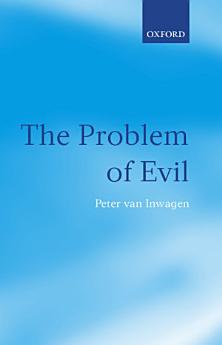The Problem of Evil
jun 2006 · OUP Oxford
Libro electrónico
200
Páginas
family_home
Apto
info
reportLas calificaciones y opiniones no están verificadas. Más información
Acerca de este libro electrónico
It is generally supposed that the fact that the world contains a vast amount of suffering, much of it truly horrible suffering, confronts those who believe in an all-powerful and benevolent Creator with a serious problem: to explain why such a Creator would permit this. Many reflective people are convinced that the problem, the problem of evil, is insoluble. The reasons that underlie this conviction can be formulated as a powerful argument for the non-existence of God, the so-called argument from evil: If there were a God, he would not permit the existence of vast amounts of truly horrible suffering; since such suffering exists, there is no God. Peter van Inwagen examines this argument, which he regards as a paradigmatically philosophical argument. His conclusion is that (like most philosophical arguments) it is a failure. He seeks to demonstrate, not that God exists, but the fact that the world contains a vast amount of suffering does not show that God does not exist. Along the way he discusses a wide range of topics of interest to philosophers and theologians, such as: the concept of God; what might be meant by describing a philosophical argument as a failure; the distinction between versions of the argument from evil that depend on the vast amount of evil in the world and versions of the argument that depend on a particular evil, such as the Lisbon earthquake or the death of a fawn in a forest fire; the free-will defense; animal suffering; and the problem of the hiddenness of God.
Acerca del autor
Peter van Inwagen is the O'Hara Professor of Philosophy at the University of Notre Dame. His many publications include An Essay on Free Will (1983), Material Beings (1990), Ontology, Identity, and Modality: Essays in Metaphysics (2001), and Metaphysics (1993, second edition 2002). He has delivered the Gifford Lectures at the University of St Andrews, the Wilde Lectures at Oxford University, the Maurice Lectures at the University of London, and the Stewart Lectures at Princeton University. He is a member of the American Academy of Arts and Sciences.
Califica este libro electrónico
Cuéntanos lo que piensas.
Información de lectura
Smartphones y tablets
Instala la app de Google Play Libros para Android y iPad/iPhone. Como se sincroniza de manera automática con tu cuenta, te permite leer en línea o sin conexión en cualquier lugar.
Laptops y computadoras
Para escuchar audiolibros adquiridos en Google Play, usa el navegador web de tu computadora.
Lectores electrónicos y otros dispositivos
Para leer en dispositivos de tinta electrónica, como los lectores de libros electrónicos Kobo, deberás descargar un archivo y transferirlo a tu dispositivo. Sigue las instrucciones detalladas que aparecen en el Centro de ayuda para transferir los archivos a lectores de libros electrónicos compatibles.







